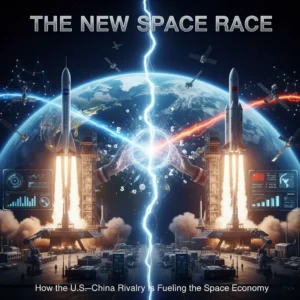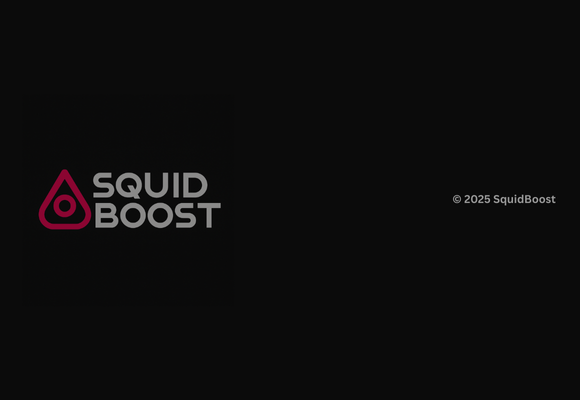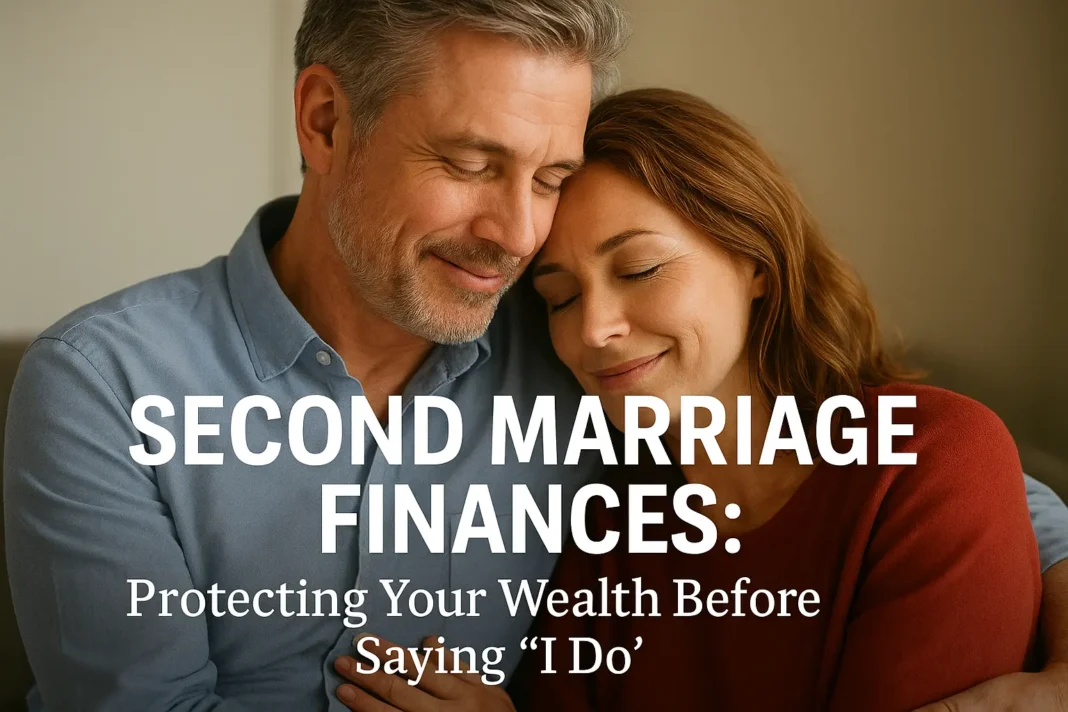Introduction

Remember those adrenaline-pumping dogfights in Top Gun? Now, picture that—but thousands of miles above Earth. What once sounded like science fiction is quickly becoming reality. The United States and China are turning their gaze skyward, not just for exploration, but for dominance.
Welcome to the new Space Economy—a high-stakes arena where technological innovation, defense strategy, and financial opportunity collide.
The Next Battleground: Space
The world’s major powers have long competed over land, sea, and air. Now, space is the final frontier for geopolitical influence. Satellites orbiting Earth control everything from GPS navigation and communication networks to banking systems and weather forecasts. Losing control up there could mean chaos down here.
That’s why both the U.S. and China are investing billions in space defense, surveillance systems, and commercial space industries. It’s not just about planting flags on the Moon anymore—it’s about controlling the flow of information and technology that drives our global economy.
The Space Economy Takes Off
This race for dominance is giving rise to a new economic revolution—the Space Economy. It’s no longer limited to rocket launches and space tourism. The sector now includes:
-
Satellite design and deployment
-
Space debris removal technologies
-
Advanced propulsion systems
-
Orbital manufacturing and data transmission
-
Defense and surveillance infrastructure
Analysts estimate that the Space Economy could exceed $1 trillion by 2035. Governments and private companies alike are pouring resources into making this happen, and investors are taking note.
Where Investment Meets Opportunity
When governments invest billions in space-related defense and infrastructure, that money flows through the private sector—fueling growth in aerospace, defense, and advanced tech companies.
It’s not just about SpaceX or Blue Origin anymore. We’re talking about an entire ecosystem of smaller firms creating components, software, materials, and maintenance systems for orbit.
Investors are already calling it “the next internet boom”—and for good reason. The innovation happening in orbit could define the next century of business.
How Everyday Investors Can Get Involved
You don’t need to build rockets to join this revolution. If you’re intrigued by the Space Economy’s potential, here are a few accessible paths:
1. Space-Focused ETFs and Mutual Funds
These investment vehicles spread exposure across a variety of companies involved in the sector—from established defense contractors like Lockheed Martin to emerging satellite startups.
2. Established Industry Leaders
Big-name corporations like Boeing, Northrop Grumman, and Raytheon are deepening their presence in space. Investing in these giants provides exposure to space without the high risk of betting on a single new company.
3. Innovation Ripple Effect
Even if you’re not directly investing in space tech, keep an eye on related industries. Advances in materials, robotics, and communication from the space race often trickle down into consumer markets—just like how NASA’s early innovations led to memory foam, modern insulation, and medical devices.
The Economic Impact Beyond the Stratosphere
Every major leap in technology—from the industrial revolution to the internet—has reshaped how we live and work. The same is true for space innovation.
The growing demand for satellite internet, global connectivity, and secure communications will have ripple effects across banking, logistics, defense, and even agriculture. Imagine farmers using real-time satellite data to track weather and soil conditions, or global logistics firms navigating with unprecedented precision.
This isn’t just about exploring space—it’s about revolutionizing life on Earth.
The U.S.–China Rivalry: A Catalyst for Growth
While competition between nations can sound alarming, it often accelerates innovation. The Cold War space race gave us the moon landing—and countless technological breakthroughs.
Today’s U.S.–China competition is shaping up to be just as transformative. Each country’s ambition pushes the other to innovate faster, build better, and spend bigger. For investors, that means decades of sustained funding and development in aerospace and defense technologies.
Caution: High Risk, High Reward
Like any emerging sector, the Space Economy carries uncertainty. Not every company will succeed, and many technologies are still experimental.
That’s why diversification is key. Spread your investments, stay informed, and remember that long-term trends often matter more than short-term market swings.
As Warren Buffett famously says, “Be fearful when others are greedy, and greedy when others are fearful.” The same wisdom applies—especially when the next frontier is literally out of this world.
Conclusion
The idea of “Top Gun in orbit” might sound cinematic, but its implications are very real. The Space Economy is reshaping the global landscape—technologically, financially, and geopolitically.
From defense spending to commercial satellites, this modern space race could define the next generation of growth and opportunity.
At Squid Boost, we believe the key to financial success lies in staying informed about these monumental shifts. The future isn’t just on Wall Street—it’s orbiting above it.
FAQs
1. What is the Space Economy?
It’s the network of industries and activities that produce goods and services related to space, including satellites, rockets, communications, and defense systems.
2. Why are the U.S. and China competing in space?
Both nations view space as the next frontier for military, economic, and technological dominance.
3. Is investing in space companies risky?
Yes, but with high risk often comes high reward. Diversified funds or ETFs can help manage exposure.
4. Which companies are leading the Space Economy?
SpaceX, Boeing, Lockheed Martin, Northrop Grumman, and startups like Rocket Lab are all key players.
5. How will the Space Economy affect everyday life?
Expect faster communication, better global internet, improved navigation, and new tech innovations that will shape industries back on Earth.







